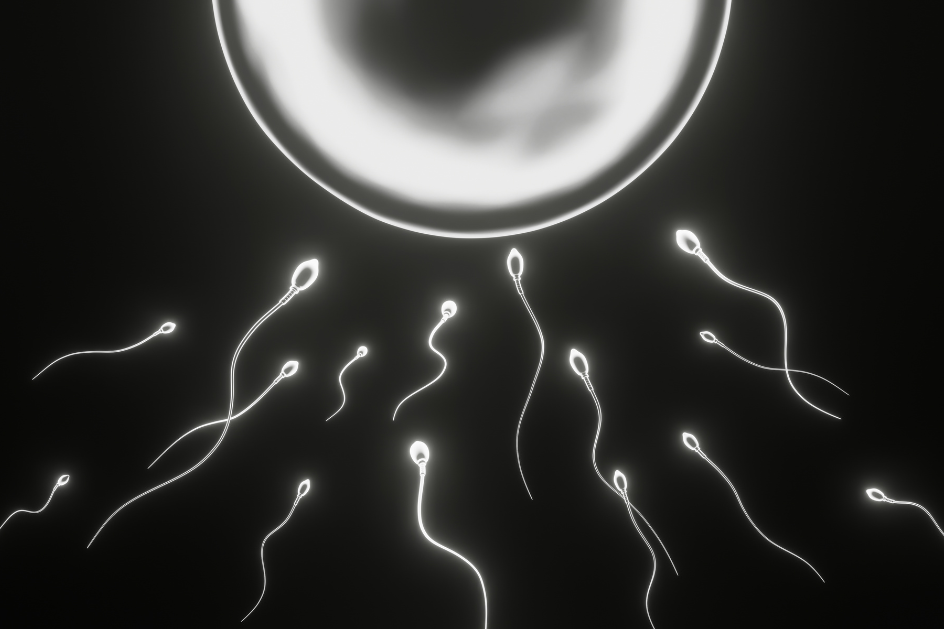What Causes Fertility Issues in Men?

Fertility issues in men can be difficult to discuss. Whether the fertility issues are caused by a blockage in the reproductive system, low sperm mobility, genetic factors, or anything else, most men would rather avoid the subject.
The truth is that male fertility factors are common and they are nothing to be ashamed of. Around 9% of men of reproductive age have experienced fertility problems. However, in many cases, men struggle to come to terms with their fertility issues.
Fortunately, in many instances, male fertility issues can be overcome with medical intervention, lifestyle changes, or both. In this post, we will investigate some factors that cause fertility issues in men. In addition, we will discuss how men might know if they have fertility issues, the stigma surrounding male fertility issues, factors that contribute to male fertility issues, and more!

How Do You Know If You Have Male Fertility Issues?
Male fertility issues can have a significant impact on a couple's ability to conceive. While many assume that fertility issues are primarily a female concern, it is crucial to recognize that men can also experience fertility problems. In this article, we will explore some of the signs that may indicate fertility issues in men, as well as provide insight into when men should consider getting tested for these issues.
Signs of male fertility issues
Several signs may indicate potential fertility problems in men. One of the most obvious indicators is the inability to conceive a child after a year of regular unprotected sexual intercourse. Other signs include:
- Low sperm count
- Poor sperm motility or morphology
- Difficulty maintaining an erection
- Experiencing pain or discomfort during ejaculation
Additionally, hormonal imbalances, certain medical conditions (such as diabetes or testicular cancer), or lifestyle factors like smoking, excessive alcohol consumption, or drug use can also contribute to male fertility issues.
When to get tested for fertility issues
If a couple has been unsuccessfully trying to conceive for a year, it is recommended that both partners get evaluated for fertility problems. However, in certain situations, men may need to consider testing earlier. Especially if there is a history of:
- Testicular surgery or injury
- Hormonal imbalances
- Chronic illness
- If the male partner has previously fathered a child with another partner
Seeking medical advice and assistance sooner rather than later can help identify potential fertility issues and ensure appropriate treatment is initiated. By conducting thorough testing and semen analysis, and receiving professional guidance, men can take proactive steps towards addressing their fertility concerns and increasing their chances of conception.
The Stigma Surrounding Male Fertility Factors
The topic of male fertility factors often carries a significant stigma in society. This stigma is perpetuated by negative societal perceptions and misconceptions surrounding male fertility, leading to harmful consequences for men's mental health and well-being.
The stigma surrounding male fertility issues arises from various societal factors. Traditionally, fertility issues have predominantly been associated with women, leading to the misconception that fertility issues are solely a female problem. This misconception disregards the fact that male fertility factors are present in approximately 30-40% of all cases. As a result, men facing fertility issues may feel marginalized and isolated due to the lack of public discourse and understanding surrounding male fertility.
The impact of this stigma on men's mental health and well-being should not be underestimated. Men experiencing male fertility issues may suffer from heightened levels of stress, anxiety, and depression. These negative emotions can exacerbate the existing fertility difficulties and hinder the chances of conceiving. Moreover, the stigma can strain relationships, causing feelings of inadequacy and strain between partners.
What Causes Male Fertility Issues?
Male fertility issues can be caused by a variety of factors, including sexually transmitted diseases (STDs), blockages or physical damage, retrograde ejaculation, genetic diseases, autoimmune problems, hormonal problems, and sexual problems.
- Sexually transmitted diseases can have a direct impact on male fertility. Infections such as gonorrhea, chlamydia, and HIV can cause inflammation and scarring in the reproductive organs, leading to sperm damage or blockages.
- Blockages or physical damage to the reproductive system can prevent the sperm from reaching the semen. This can be caused by previous surgeries, injuries, or structural abnormalities.
- Retrograde ejaculation is a condition where the ejaculated semen goes back into the bladder instead of exiting through the penis. This can be a result of nerve damage or certain medications, leading to a reduced sperm count in the semen.
- Genetic diseases can also affect male fertility. Conditions like Klinefelter syndrome, Y chromosome microdeletions, and cystic fibrosis can cause abnormal sperm production or function.
- Autoimmune problems occur when the immune system mistakenly attacks the sperm, hindering their ability to fertilize an egg.
- Hormonal problems can disrupt the production of testosterone, leading to a decrease in sperm production and fertility.
- Lastly, sexual problems such as erectile dysfunction or premature ejaculation can also contribute to male fertility issues.
Now that we have discussed some of the causes of male fertility factors, let's look at some of the factors that can contribute, such as lifestyle and environment.

Factors that Contribute to Male Fertility Issues
Male fertility issues can be influenced by a variety of factors, including medical conditions and lifestyle habits. These factors can increase the risk of fertility issues in men and hinder their ability to conceive a child.
Medical conditions play a significant role in male fertility problems. Many of the most common medical issues that contribute to male factor fertility issues were detailed in the section above. In addition to those, certain medical conditions, such as diabetes, obesity, and underlying health problems, can decrease sperm production and quality.
Finally, genetic diseases, autoimmune problems, hormonal imbalances, and sexual problems can further contribute to male fertility issues. These factors can disrupt the normal reproductive processes and reduce the chances of successful conception. Men need to be aware of these potential problems and seek medical attention if they are concerned about their fertility.
Environmental factors can also contribute to male fertility issues. Exposure to certain chemicals and toxins, such as pesticides, heavy metals, and radiation, can impair sperm production and function. For example, those who smoke marijuana may experience lower sperm counts than those who do not.
Additionally, elevated temperatures in the testicles, caused by tight clothing, hot baths, or prolonged exposure to heat, can decrease sperm production and quality.
Lifestyle habits, such as smoking, excessive alcohol consumption, and drug use, have also been shown to negatively affect male fertility. These habits can reduce sperm count, motility, and shape, making it harder for sperm to reach and fertilize an egg.
Male Factor Fertility Issues Treated at The Fertility Wellness Institute of Ohio
Discussing male factor fertility issues is never easy. However, the only way to treat male fertility issues and find solutions is by discussing all the options available and pursuing medical help. Oftentimes, treatment is possible, and there are solutions that can help couples to get pregnant.
Success rates vary for different treatment methods, but so long as the man is able to produce some healthy sperm, even a small amount, there is a chance for conception using methods like in vitro fertilization (IVF). Reproductive technologies have made it possible to not only easily test sperm quality, but also overcome medical issues.
If you and your partner are experiencing unexplained fertility issues, then it is time to schedule an appointment with the Fertility Wellness Institute of Ohio. Dr. Chin is a practicing physician and expert reproductive endocrinologist who can help you address fertility factors that may be preventing pregnancy.
Click here to schedule an appointment today!
Follow the Fertility Wellness Institute of Ohio on Facebook, Instagram, X, and LinkedIn!

